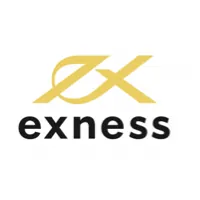CMA, Central Bank of Curaçao and Sint Maarten, CySEC +5 more
Top Forex brokers with Nigerian Naira accounts
The Nigerian Naira (NGN) serves as the official currency of Nigeria. It was introduced in 1973, replacing the pound sterling as the country's legal tender when Nigeria switched to a decimal currency system.
The Central Bank of Nigeria (CBN) is the country's central bank and holds the primary responsibility for issuing and managing the Nigerian Naira. As the regulatory authority, the CBN plays a crucial role in implementing monetary policies to ensure economic stability and growth.
The Nigerian Naira is actively traded in the foreign exchange market, where it is commonly paired with major currencies such as the US Dollar (USD), Euro (EUR), and British Pound (GBP). While the Naira is widely available for trading through various Forex brokers, only a limited number of brokers offer accounts denominated in NGN.
Having a trading account in NGN can be advantageous, especially for traders residing in Nigeria or those who frequently use the currency in their daily transactions. Such accounts can save currency conversion fees and provide convenience for local traders.
Overall, the Nigerian Naira remains an important currency in the global financial markets, and traders interested in exploring opportunities involving NGN should consider selecting brokers that offer NGN-denominated accounts for a more seamless and cost-effective trading experience.
The Nigerian Naira underwent a significant exchange rate policy shift in 2016, transitioning from a pegged rate system to a more flexible exchange rate regime. Under this new system, the Naira was allowed to float within a specified range, determined by the Central Bank of Nigeria (CBN) in response to market forces. While the central bank retains some control over the currency's value, market factors play a more significant role in influencing its exchange rate.
The value of the Nigerian Naira is heavily influenced by commodity prices, particularly oil. As the second-largest oil and gas producer in Africa, Nigeria largely relies on energy exports, with the USA being a significant trade partner. Fluctuations in global oil prices directly impact the Naira's value, making it sensitive to changes in the oil market.
It's important to note that Nigeria's economy is characterized by high instability, as evidenced by multiple episodes of high inflation in recent years, such as in 2005 (17.9%), 2010 (13.7%), 2017 (16.5%), and 2021 (17%). Moreover, in 2023, the Naira experienced a significant devaluation of 36% on the foreign exchange market when the CBN failed to maintain the currency within its predetermined range. This highlights the currency's high risk and volatility as an account currency.
Considering these factors, traders and investors should exercise caution and carefully assess the economic situation, inflation risks, and currency policies before using the Nigerian Naira as an account currency. Due to its highly volatile nature, the Naira may pose considerable risks in Forex trading and international transactions. Appropriate risk management strategies and staying updated on economic developments are crucial when dealing with the Nigerian Naira.
